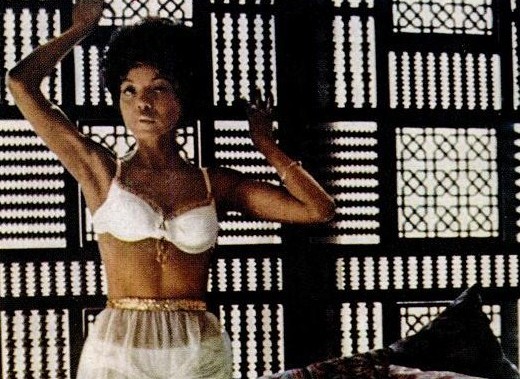Chimamanda Adichie has often told the story of the Lagos dentist who chided her for writing about sex in Half of a Yellow Sun. Here is how she puts it in a recent interview: “This woman wrote me a very lovely email, this woman who is a dentist in Lagos and she said, ‘Chimamanda you mean so much to us. My daughter looks up to you, but please in your next book don’t write about sex. And if you must write about sex, please don’t make it enjoyable.'”
As uncalled-for as the woman’s admonition may seem, it fits the common stereotype that African novelists and readers alike are not keen on sex. Two unspoken rules have thus far governed the inclusion of sex in African novels. The first rule is simple: leave it out of the story entirely. The second rule applies to novelists who feel compelled for whatever reason to touch on the sex lives of their characters: handle sex as cautiously as possible by placing it within a moralizing context.
It was in 1969, three years after Man of the People was published, that someone asked Achebe why he seemed uncharacteristically open about the sex life of the principal character. Achebe is initially taken aback by the question but eventually responds: “The sex is not there just for titillation if that’s what you are worrying about. I think it plays an important part in the development of the character.” Now, I haven’t read Man of the People and so cannot speak for the quality or the explicitness of these scenes. But Achebe makes his feelings about sex in novels quite apparent. Sex has to serve a practical purpose in narratives. There can be no sex for sex sake. To linger and tease out the subtleties of the erotic moment would be indulging and no one wants to do that.
But if, like me, you are interested in these sort of things, you’ll know where to go to dig for erotic treasures in African novels. People who think that African novelists are generally shy about these things just don’t know their African novels well. I meet these kinds of people all the time. They’ve read their Achebe and Ngugi and, therefore, think they know how novelizing is done in Africa. But, they dont.
It all started in the 50s with the Onitsha Market chapbooks. Mable the Sweet Honey That Poured Away or Caroline the One-Guinea Girl may not be Fifty Shades of Grey but the authors of these pamphlets are equally unabashed about taking the reader inside the bedroom. There is plenty of sex in Buchi Emecheta‘s seemingly preachy novels. The way she narrates sexual encounters with a Nollywood-like urgency makes for such a fun and funny read. If you have a taste for literary perversions, I know just where to direct you. First to Sudan. I have in mind Tayib Salih‘s 1969 novel, Seasons of Migration to the North. And then to Somalia: Nuruddin Farah‘s Secrets. Teju Cole’s Open City could easily win the award for the most snooty African novel ever written. But don’t be fooled. Tucked away in that brainy little novel is a freaky afternoon with a stranger in faraway Belgium.
If I haven’t convinced you that African novels are as sexy and sexual as they come, stop by again next week for the first post in a new Brittle Paper series. It is titled “Sex in African Novels” and will feature excerpts of sex scenes and erotic moments in classic and contemporary african novels.
Image Via









Ainehi Edoro June 25, 2015 20:56
@Eddie: I look forward to reading it.